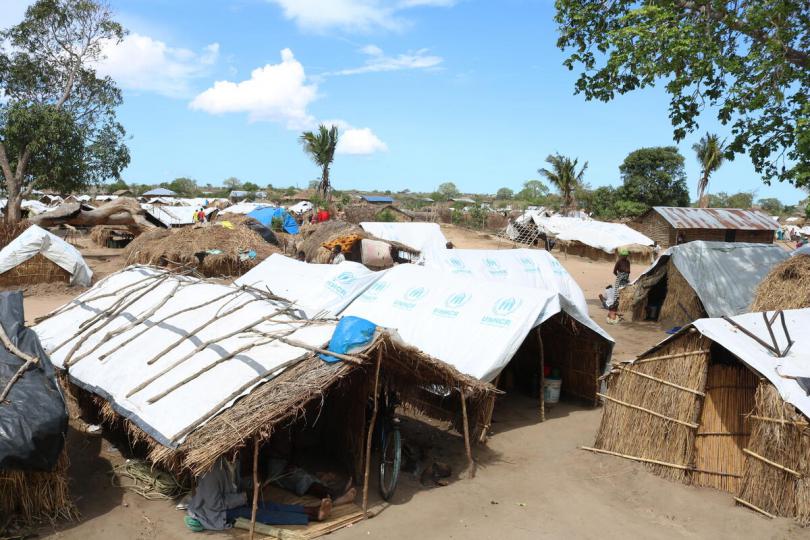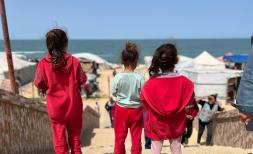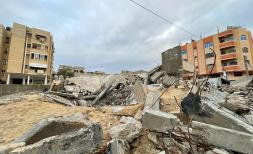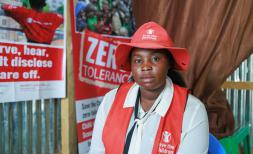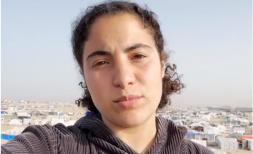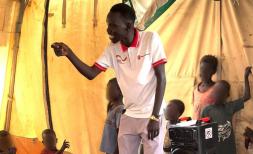A day in the life of Harrisson Ruben, Education in Emergency specialist, Mozambique
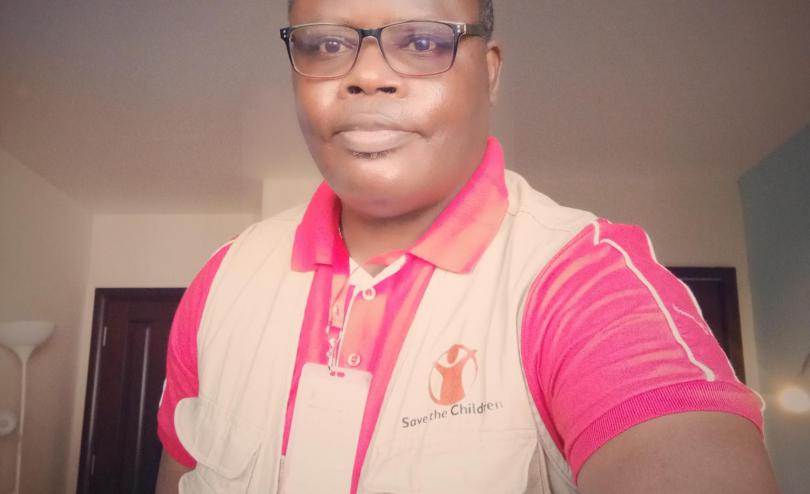
Children in Mozambique’s Cabo Delgado region are in crisis. They are at risk of being killed by armed groups and terror has driven hundreds of thousands from their homes. Trauma, hunger, a lack of education and now COVID-19 are the grim facts of their lives. Our teams are working hard to alleviate their suffering. Harrisson Ruben, one of our Education in Emergency specialists, shares one of his days.
06:30 I’m in Pemba - a beautiful port city and the provincial capital of Cabo Delgado.
From my hotel window I hear the lively shouts of local commuter operators calling for passengers. Such normality hides the distressing reality of a region where 700,000 people have been displaced and 2,600 killed in the conflict against extremist rebels.
Pemba hosts an arrival centre for displaced adults and children. It’s flooded every day by around 1,000 people – almost half are children. They have escaped situations where they may have seen their entire villages destroyed and loved ones killed. I expect some of the children I meet today on my assessment visit to Metuge will have come through this centre.
As an education in emergency technical specialist, my role is to understand what children need regarding their disrupted education and then provide appropriate support.
08:30 We leave in two vehicles – our destination is a 60km, hour-long journey. It’s my first time in this district and I wonder what I will find.
Internally Displaced People (IDP) and their children arrive daily and we really need to see exactly what is going on, so we can help in the best way possible.
10:00 On arrival we go directly to the IDP accommodation centre based in a school.
Dozens of tents have been erected all around the school yard. I’m pleased to see children running around playing as if everything is fine. Some stop to stare at us wondering what we are doing here. A group of mothers bend over a fireplace cooking while their small children wait to be served.
I’ll be holding discussion groups with children, parents, teachers and community leaders.
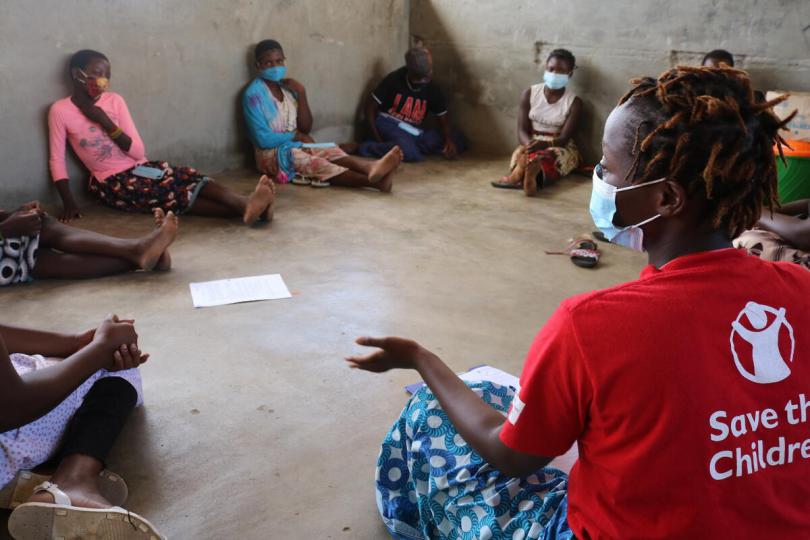
10:15 I start with a group of eight parents. They look so frail and tired.
They say there is not enough food for their children and they are afraid of contracting diseases because of the unhygienic condition of the latrines. They speak hesitantly about the armed violence they escaped. I try very much to avoid touching on sensitive issues. Their faces show that they have gone through too much pain and I need to respect that. Many will have seen their farm animals, friends and even family members killed. Some of the women are alone. We have been advised not to ask where their husbands are.
11:00 Next, a group of timid boys and girls. Two girls, around 11 years old, have their younger siblings sleeping peacefully on their backs.
To get the children talking and to gain their confidence I decide to start with a funny hare and baboon story my grandmother used to tell me. I am not a particularly good or funny storyteller, but soon I manage to squeeze out a smile from a few of the children. And as I reach the funniest part of the story, the boys giggle and the girls grin widely. Then we get down to business.
One boy, João aged 11, says: “We left our homes in a hurry to hide in the bush when our village was attacked. We could not carry our books. Now I have no books and school materials – including pencils and paper. So I have nothing to use.”
They explain there is no playing space for them in the camp and that they cannot play freely in the nearby community playing field. They say this is because big boys from the host community don’t let them.
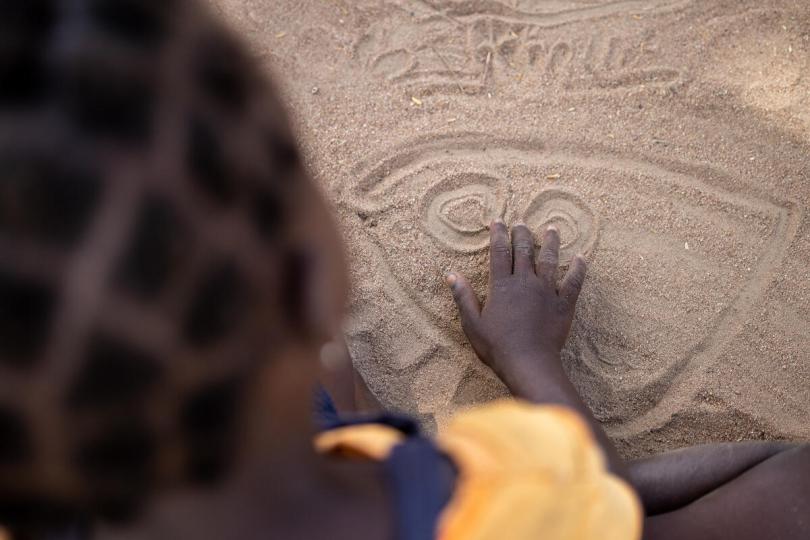
12:00 I start my discussion groups with teachers and community leaders.
Both groups share how the armed violence has affected them and how the COVID-19 pandemic has made it even worse. They have no money to buy soap; water is scarce. They can’t afford face masks.
The teachers say that pupil numbers have suddenly increased and their school has no resources to support the additional children with the home learning required by COVID-19 restrictions. They point out that parents cannot afford the photocopies of written exercises their children need.
The teachers also explain that they have no education resources because they left their homes and schools with nothing. My background is teaching, and I imagine how I would feel in their situation. I admire their resilience and determination to do the best they can under very difficult circumstances.
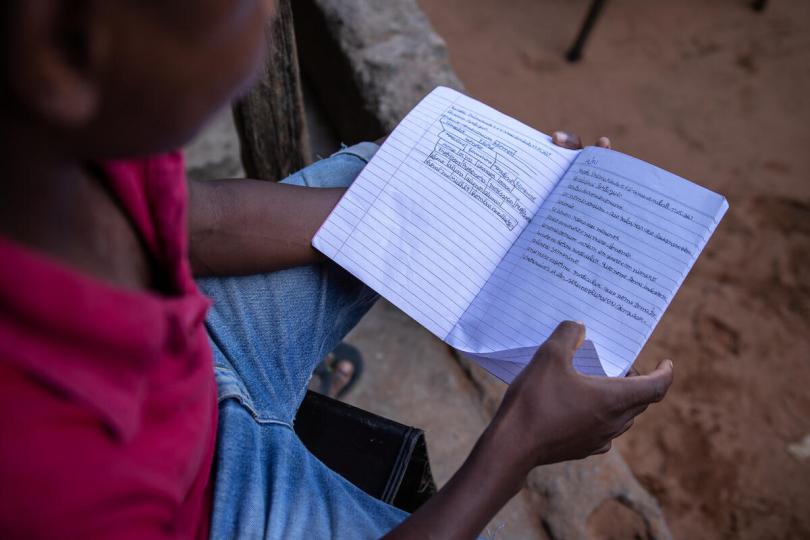
15:00 I thank everyone profusely for their contributions and head towards the vehicles.
Heading back to Pemba, we talk about some of our next steps. We agree:
the children need immediate counselling and psychosocial support to help them cope with trauma they have experienced
the children need learning materials immediately to participate fully in home learning
the teachers, overwhelmed by the large influx of children, urgently need teaching materials
quick arrangements must be made to create a child-friendly playing space
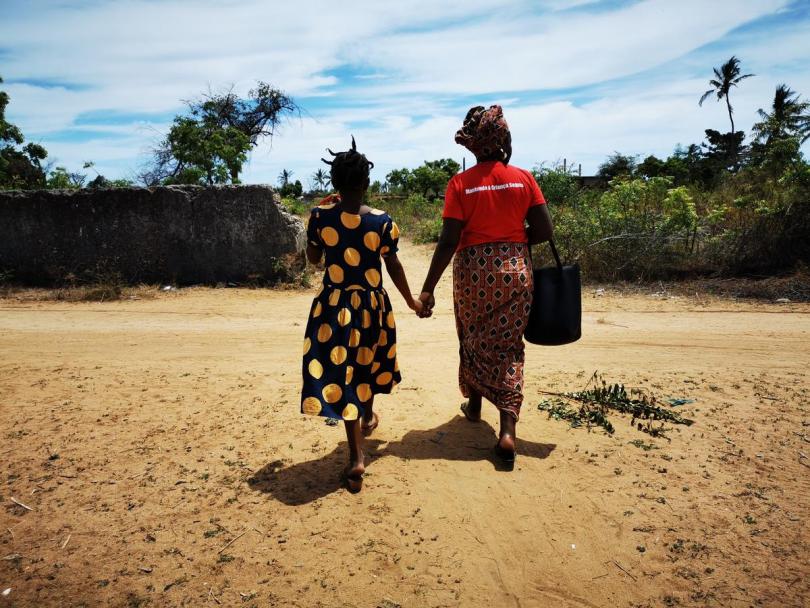
19:00 I check my emails; everything seems to be marked important!
I’m working on a project proposal seeking funds for our humanitarian response to Cabo Delgado. I’m inspired by my day meeting the children and their families and I feel a surge of adrenalin - I work through the proposal and send it off. I hardly notice the time ticking away.
23:00 As I get ready to sleep, I think that tomorrow will be another long day for the traumatised children and adults I met.
I hope that my assessment will ensure that Save the Children can give the children the help they urgently need.
